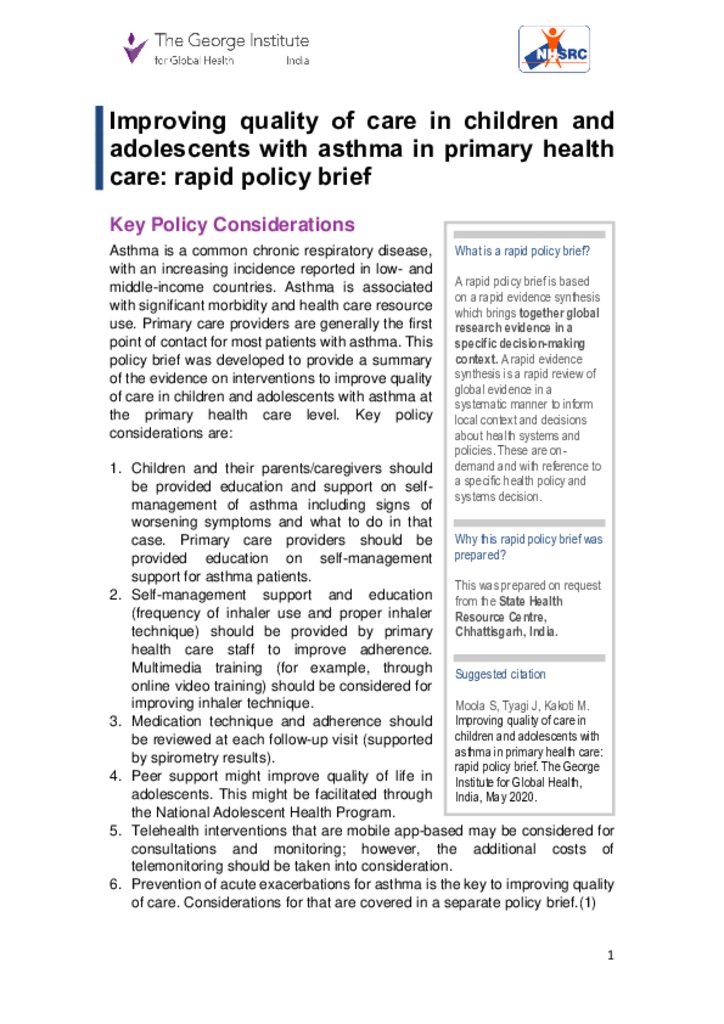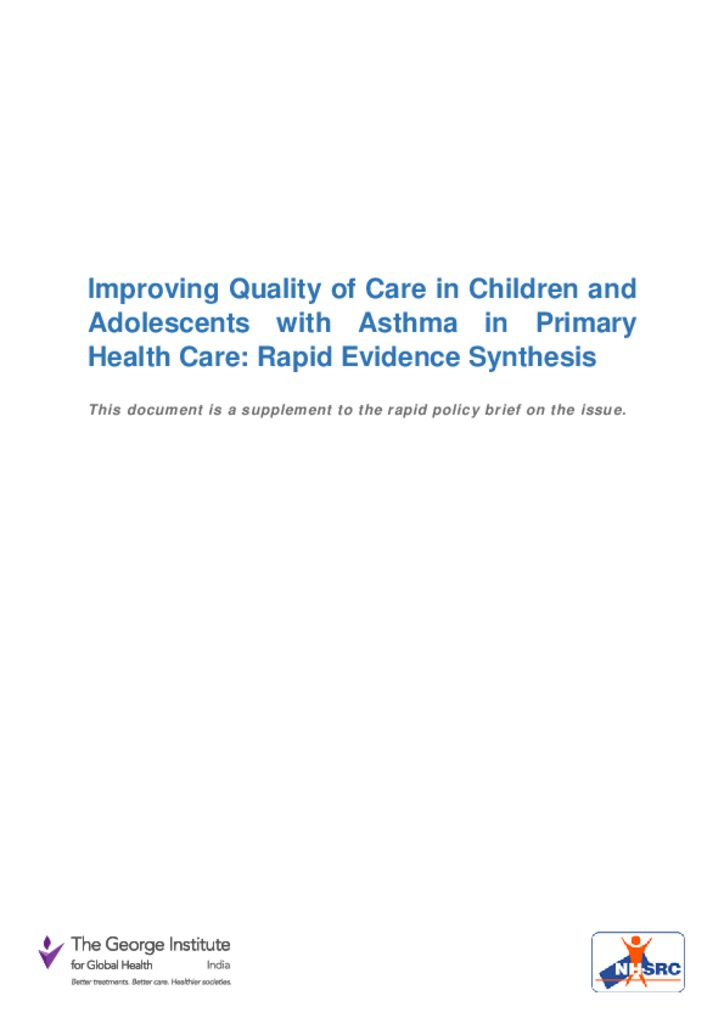
Improving quality of care in children and adolescents with asthma in primary health care: rapid policy brief
Asthma is a common chronic respiratory disease with an increasing incidence reported in low-and-middle-income (LMIC) countries. The State Health Resource Centre (SHRC), Chhattisgarh identified a high burden of the condition in the State particularly in areas of high industrial pollution. The Centre requested our RES team to review the existing evidence on interventions to improve quality of care among children and adolescents with asthma. The evidence was to be contextualised for primary health care settings and from an LMIC perspective.
The rapid review thus conducted provided the SHRC with a summary of evidence-based policy considerations. This would enable decision makers in better managing and improving the quality of care among children and adolescents with asthma at the primary health care level in Chhattisgarh.
Key policy considerations:
- Children and their parents/caregivers should be provided education and support on self-management of asthma including signs of worsening symptoms and what to do in that case. Primary care providers should be provided education on self-management support for asthma patients.
- Self-management support and education (frequency of inhaler use and proper inhaler technique) should be provided by primary health care staff to improve adherence. Multimedia training (for example, through online video training) should be considered for improving inhaler technique.
- Medication technique and adherence should be reviewed at each follow-up visit (supported by spirometry results).
- Peer support might improve quality of life in adolescents. This might be facilitated through the National Adolescent Health Program.
- Telehealth interventions that are mobile app-based may be considered for consultations and monitoring; however, the additional costs of telemonitoring should be taken into consideration.
- Prevention of acute exacerbations for asthma is the key to improving quality of care. Considerations for that are covered in a separate policy brief.
The full policy brief and technical supplement document are available below:
Download policy brief (PDF 222 KB)
Download supplement document (PDF 785 KB)




